The 2024 National Energy Internet Conference was successfully held at Beijing's Future Science City in Changping District from June 20 to 21, 2024. Co-hosted by Tsinghua University and the Beijing Future Science City Administrative Committee, the conference was organized by the Energy Internet Research Institute, Tsinghua University and Beijing Future Science City Development Group Co., Ltd., with co-organization from the Sichuan Energy Internet Research Institute Tsinghua University, Tsinghua University Institute for National Governance and Global Governance, and Tsinghua University Institute for Carbon Neutrality.
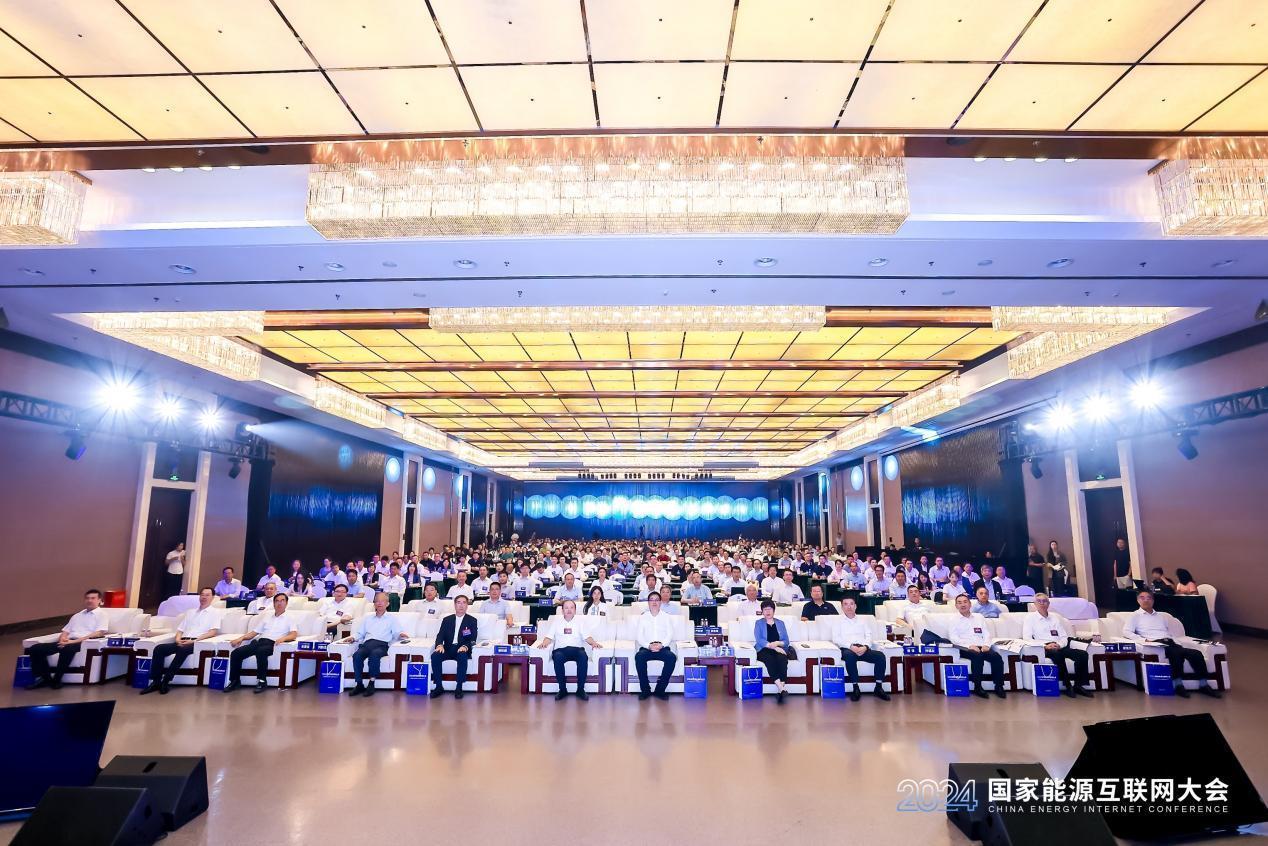
To advance carbon peak and carbon neutrality goals while accelerating energy transition, the conference adopted the theme "AI Empowering Energy Internet: Innovating New Quality Productive Forces". It established a cross-sector platform for enterprises, research institutions, and venture capital firms to foster an open, collaborative ecosystem in energy internet development. This initiative aims to shape a new paradigm of low-carbon intelligent development for the future energy internet industry.
The conference gathered nearly 1,000 on-site participants including: Xiang Haiping (Chief Engineer, National Energy Administration); Academicians Wang Xiaoyun (CAS) and Liu Yunjie (CAE); Zhi Xianwei (Deputy Party Secretary and District Chief of Changping, concurrently Deputy Party Secretary and Director of Future Science City Administrative Committee); Jiang Shengyao (Vice Chair of Tsinghua University Council); Liu Qiang (Deputy Director of Future Science City Administrative Committee and Deputy District Chief of Changping). Representatives from energy internet enterprises, research institutes, financial institutions, and media attended, with over 100,000 viewers via Tsinghua's live streams. Gao Wensheng, Secretary-General of the National Energy Internet Industry and Technology Innovation Alliance, presided.
In his opening address, Chief Engineer Xiang Haiping highlighted NEA's implementation of energy security strategies through a four-pillar innovation system: major technology R&D, critical equipment development, demonstration projects, and scientific platforms. He emphasized intensified efforts in core technology breakthroughs for new energy systems and commitment to advancing energy innovation. Looking forward, the NEA will strengthen top-level design, cultivate new energy industries, enhance international cooperation, and provide robust support for achieving carbon peak and carbon neutrality goals.
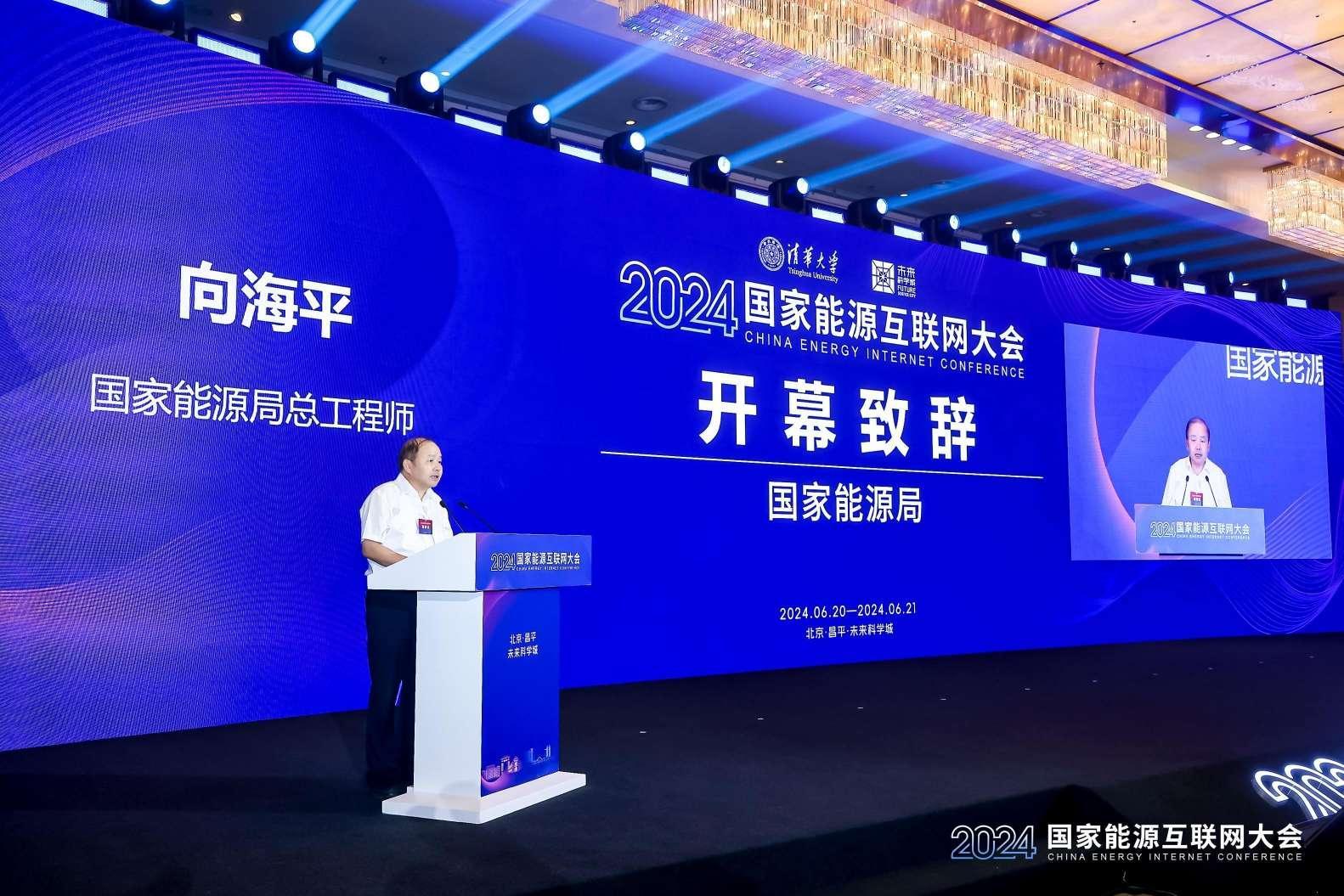
Zhi Xianwei, Deputy Party Secretary and District Chief of Changping, concurrently serving as Deputy Party Secretary and Director of the Future Science City Administrative Committee, delivered a welcome address at the conference. He highlighted Changping's unique position as Beijing's only designated hub for energy internet development, emphasizing its strategic focus on this sector to strengthen advanced energy industries. In recent years, Changping has pioneered China's first regional policy package supporting energy internet initiatives, integrating key technological domains including smart grids, ultra-high-voltage transmission, and clean energy – fostering robust industrial growth.Looking ahead, Changping will accelerate the convergence of power, computing power, and propulsion ("Three Forces") under its "energy-plus-internet" framework. The district will promote demonstration projects for new technologies, models, and business formats, catalyzing whole-value-chain transformation across energy production, transmission, storage, and consumption. These efforts will solidify Changping's status as a premier energy internet industrial cluster zone.
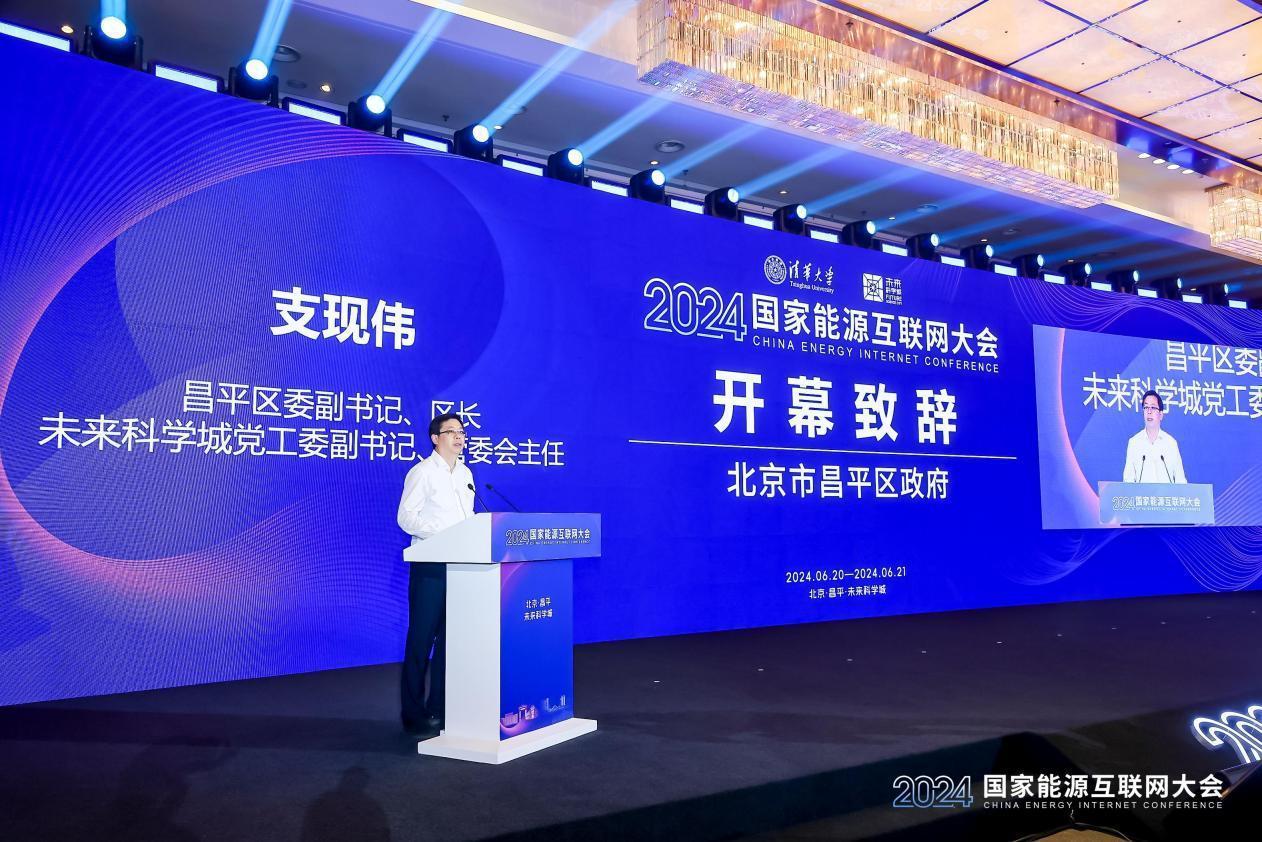
In his address, Jiang Shengyao, Vice Chair of Tsinghua University Council and Vice President of Tsinghua Alumni Association, stated that the energy internet empowers traditional energy sectors through innovative technologies, driving cross-domain integration and serving as exemplary new quality productive forces enabling energy transition. He noted China's substantial progress in this field in recent years, highlighting Tsinghua's establishment of multiple research institutes that have broken through critical technology barriers, advanced international energy cooperation, and amplified China's global voice. Looking forward, Jiang affirmed Tsinghua's commitment to cultivating interdisciplinary talent that spurs technological innovation and social progress, thereby supporting the sustainable development of the energy internet ecosystem.
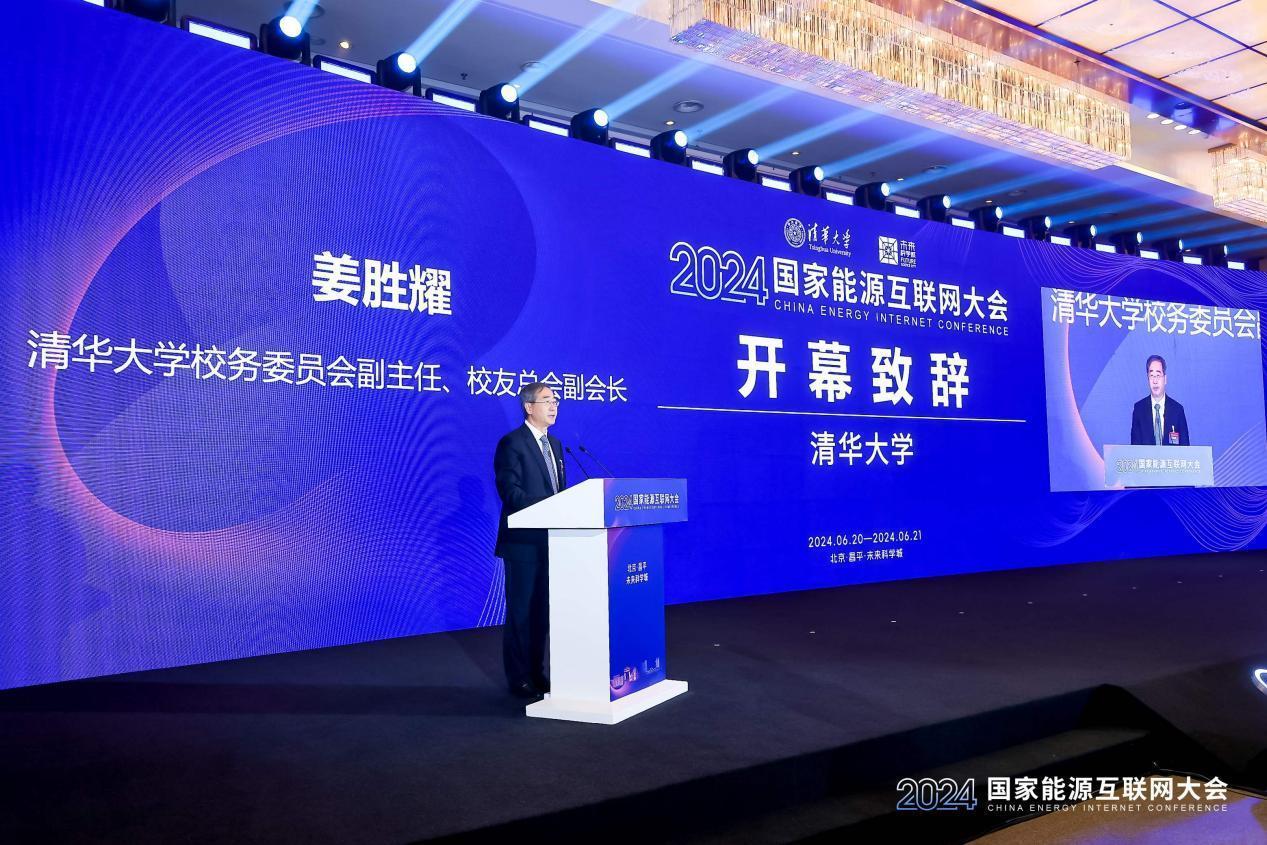
Academician Wang Xiaoyun of the Chinese Academy of Sciences delivered a keynote report titled "Cryptography and Data Factor Markets", addressing opportunities and challenges at the intersection of data factor markets and the energy internet. She explored cryptographic applications and associated challenges in both domains, emphasizing data's critical role as a fundamental strategic resource and key production factor amid rapidly expanding data transactions.Wang highlighted growing security challenges in energy internet ecosystems, particularly in cybersecurity, IoT security, and industrial control systems. She underscored the imperative of adopting next-generation cryptographic technologies—notably quantum-resistant cryptography—to safeguard energy infrastructure. The integration of cryptography with new-generation IT, she concluded, will provide robust support for the digital economy ecosystem.
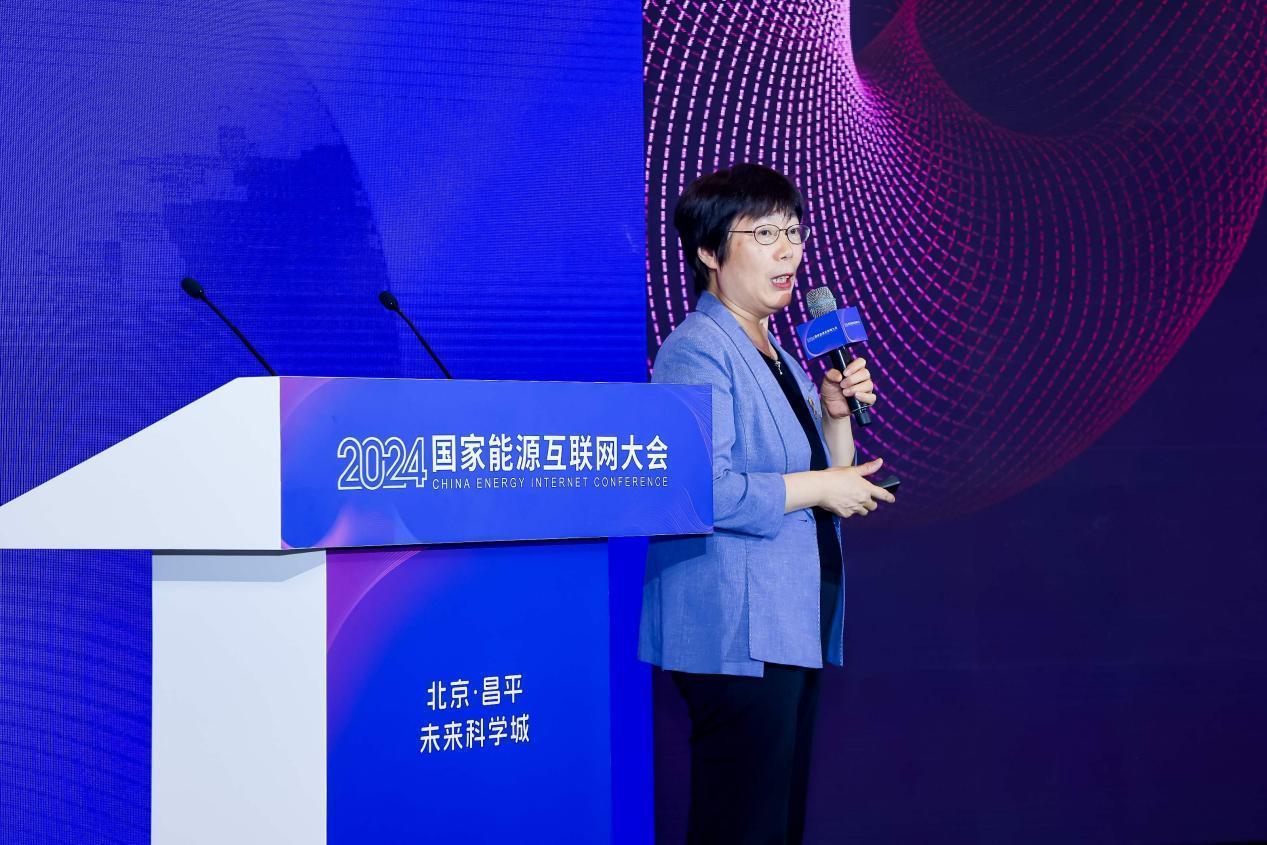
Academician Liu Yunjie of the Chinese Academy of Engineering presented a keynote report titled "Synergizing Energy and Computing Power Internet Development", emphasizing that deterministic networking technology provides critical solutions for fundamental challenges in both energy and computing infrastructures. He asserted this technology is paramount for advancing their coordinated development, particularly in achieving dual carbon goals and addressing energy system complexities.Liu highlighted the essential role of integrated networking and computing technologies, calling for intensified R&D to resolve the mismatch between computing demands and network bandwidth growth. Such efforts, he stressed, are vital to sustain the evolution of the energy internet ecosystem.
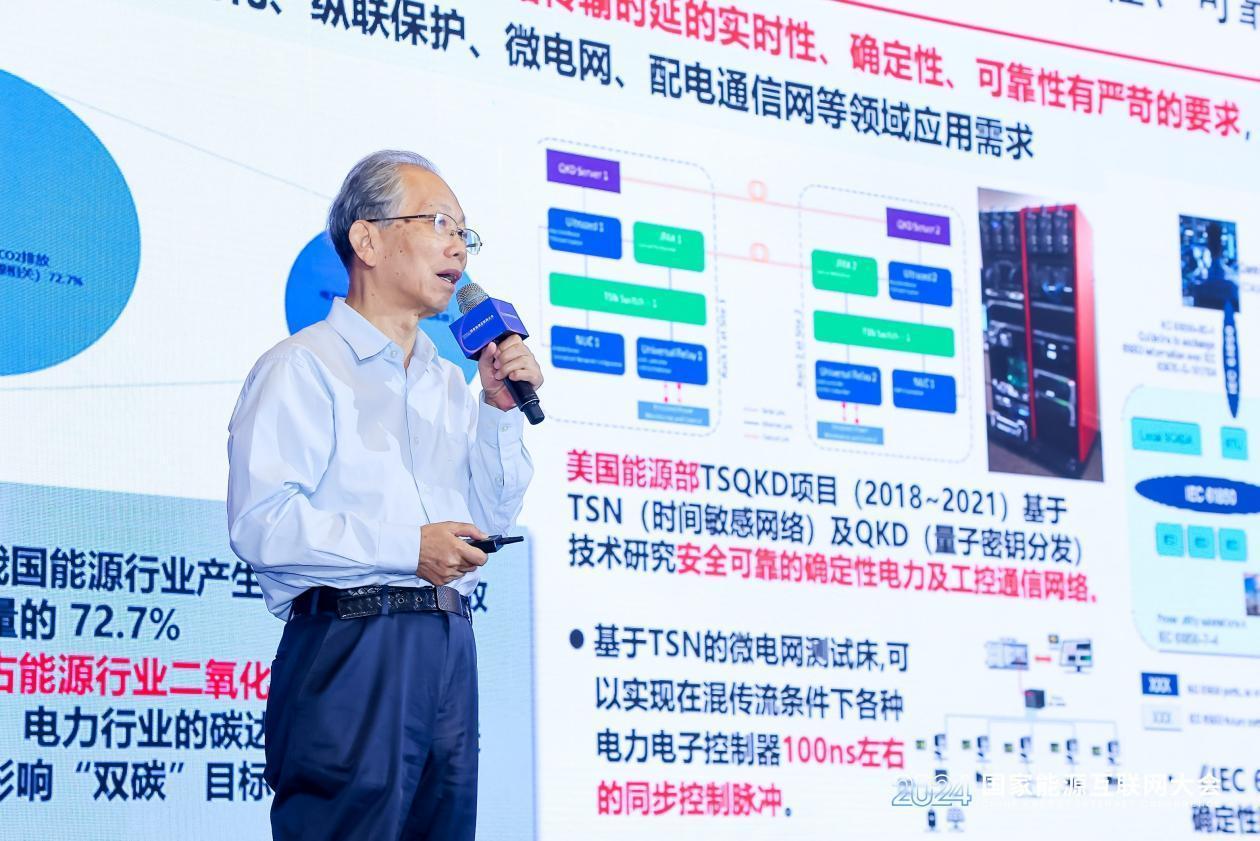
During the conference, Gao Feng—Deputy Director of the Energy Internet Research Institute, Tsinghua University and Deputy Secretary-General of the National Energy Internet Industry and Technology Innovation Alliance—officially released the 2024 National Energy Internet Development Annual Report on behalf of Tsinghua University’s Department of Electrical Engineering and Applied Electronics, the Energy Internet Research Institute, Tsinghua University, the Sichuan Energy Internet Research Institute Tsinghua University, and the Alliance. This comprehensive report systematically analyzes policy trends, industrial development trajectories, and innovation landscapes in the energy internet sector, revealing that energy internet enterprises surpassed 300,000 in 2023 amid intensifying networked characteristics of energy systems and a universal strategic shift toward cross-sector expansion. Serving as consolidated industry consensus, the report provides foundational and forward-looking perspectives for governments, enterprises, and research institutions to stimulate innovative approaches.
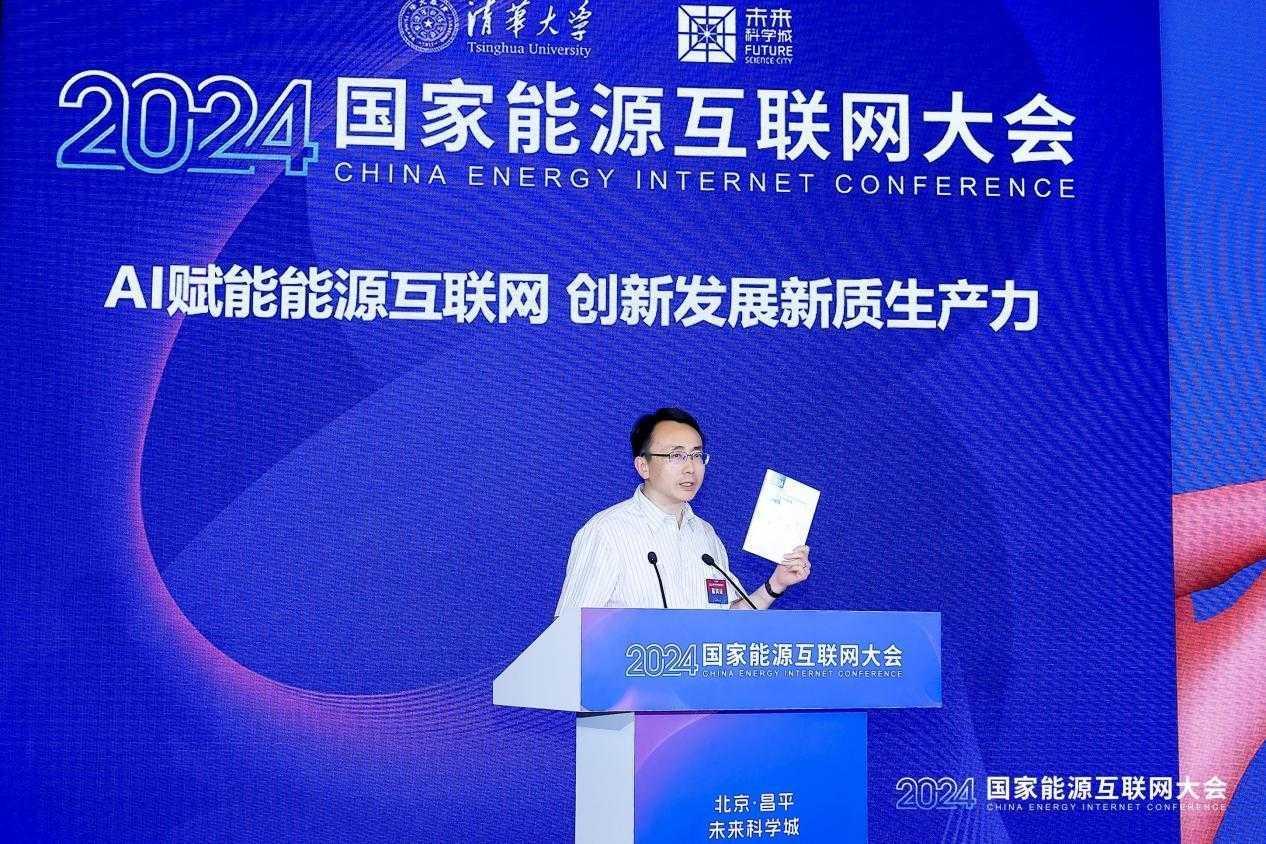
Liu Qiang, Deputy Director of Future Science City Administrative Committee and Deputy District Chief of Changping, unveiled the Construction Plan for Future Science City's Energy-Carbon Monitoring Platform during the conference. The plan outlines a collaborative initiative between the Administrative Committee, Tsinghua University's Department of Electrical Engineering, Energy Internet Research Institute, Tsinghua University, and Sichuan Energy Internet Research Institute Tsinghua University to develop an integrated platform featuring monitoring, management, control, regulation, and aggregation capabilities.Designed for administrative bodies, enterprises, and district-level departments within Future Science City, the platform will adopt a unified phased implementation strategy. It aims to pioneer dynamic carbon accounting methodologies, facilitate the regional transition from dual control of energy consumption to dual control of carbon emissions, and advance Changping's carbon neutrality goals.Scheduled for official launch in June 2025, this will become China's first government-led regional carbon monitoring platform implementing the "carbon meter-device-system" application model. The platform ensures Measurable, Reportable, and Verifiable (MRV) carbon accounting processes through high-precision emission metrology, enabling multi-tiered (regional-enterprise) dynamic monitoring and analytical applications. This infrastructure will provide robust data-driven decision support for energy-carbon governance in Future Science City.
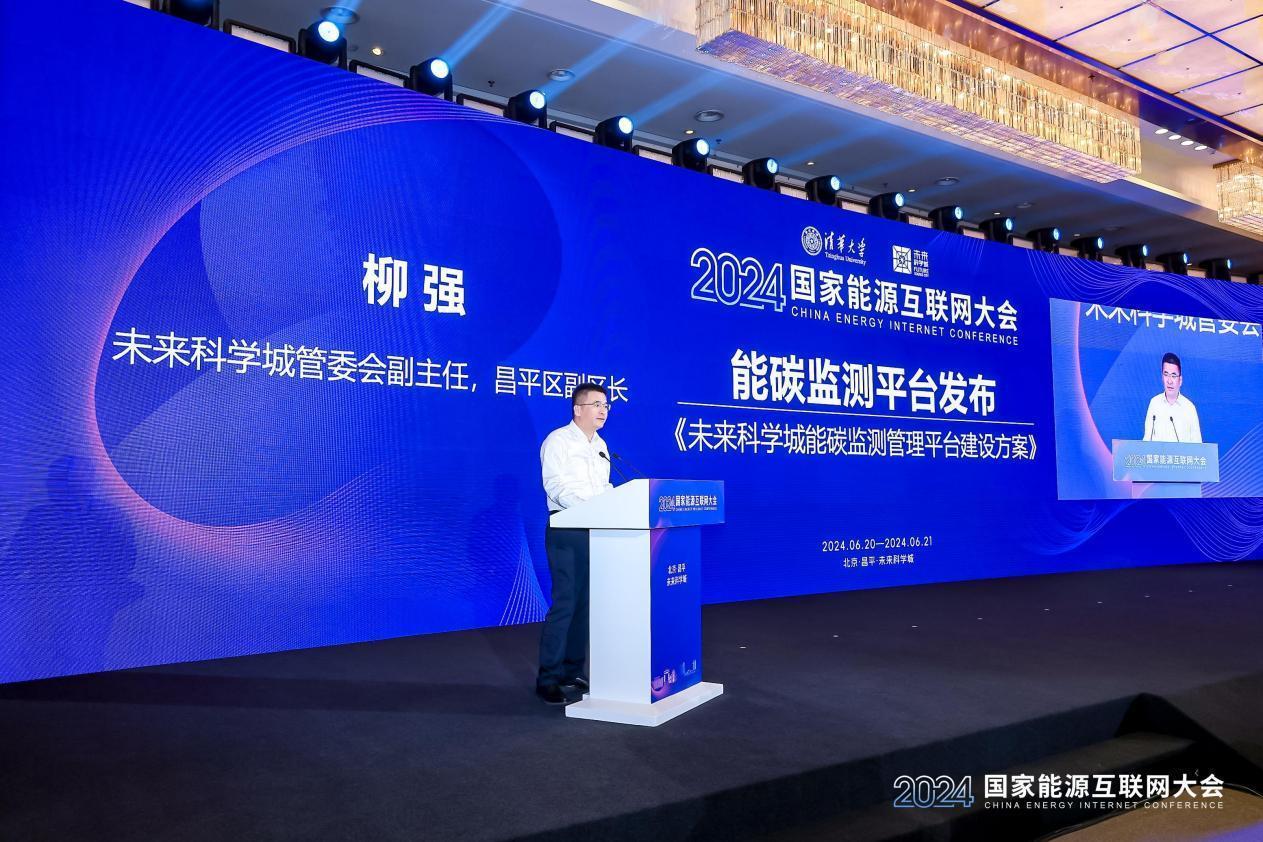
The inauguration ceremony for Future Science City's Energy-Carbon Monitoring Platform was jointly conducted by Zhi Xianwei (Deputy Party Secretary and District Chief of Changping, concurrently Director of Future Science City Administrative Committee), Kang Chongqing (Director of Tsinghua University's Department of Electrical Engineering), Li Jiao (Director of Materials Industry Division at Beijing Municipal Bureau of Economy and Information Technology), Liu Qiang (Deputy Director of Future Science City Administrative Committee and Deputy District Chief of Changping), Chen Yongshen (Deputy Director of Energy Division at Beijing Municipal Commission of Development and Reform), Gao Feng (Deputy Director of Energy Internet Research Institute, Tsinghua University), Liu Qiang (Deputy General Manager of Beijing Zhongguancun Science Services), Zhang Ning (Tenured Associate Professor at Tsinghua EE Department), Quan Yu (Deputy Director of Industrial Development Department at Sichuan Energy Internet Research Institute Tsinghua University), and Shi Zinan (Chairman of Beijing Xiqing Energy Technology).Additionally, the conference honored enterprises leading the "2024 Energy Internet Best Practice Cases" and recognized experts awarded the "Outstanding Contribution Awards".
During the keynote session, four presentations were delivered: Li Dan (Deputy Director of State Grid National Power Dispatching Center) addressed AI-Enabled Dispatch Operations for New Power Systems; Li Peng (President of CSG New Power System Research Institute) explored Research and Prospects of Foundational AI Models in Power Systems; Sun Fuyou (Huawei Vice President and CEO of Power Digital Unit) presented Triple-Bottom-Line Accounting: Accelerating Energy Industry Digitization and Intelligence; and Lu Chao (Tenured Professor and Associate Director of Tsinghua EE Department) analyzed Applications and Challenges of AI in Power System Stability Control. Participants collectively discussed innovation pathways for China's energy internet under the dual carbon goals framework.
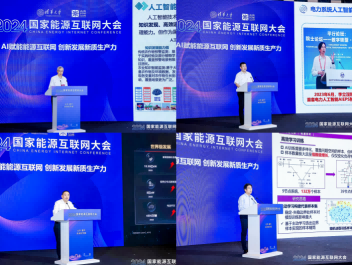
On the afternoon of June 20, the conference organized seven parallel forums addressing energy digitalization, industrial technology innovation, engineering applications, energy IoT, smart hydrogen, power carbon neutrality, energy storage deployment, and energy internet standardization, facilitating extensive discussions.The morning of June 21 featured the Xinhua Energy Salon, where experts from the Chinese Society for Electrical Engineering, National Energy Group New Energy Institute, Dongfang Electronics Corporation, Huawei ICT Marketing, Beijing Future Science City Administrative Committee, China Economic Information Service (Xinhua), Chinese Academy of Social Sciences, and Tsinghua University's Energy Internet Research Institute explored AI-Driven Development of the Energy Internet.That afternoon, delegates visited Future Science City Exhibition Hall, Energy Internet Tower, and SPIC Central Research Institute, gaining comprehensive insights into the Energy Valley's industrial planning, policy frameworks, and latest advancements.
Focusing on critical pathways including energy digital transformation, hydrogen technology applications, power carbon neutrality, energy IoT development, and renewable-storage integration, the conference provided innovative perspectives and actionable strategies supporting Beautiful China and Ecological Civilization initiatives. This lays a solid foundation for a greener, smarter energy future, demonstrating China's commitment to advancing global energy internet development through pioneering solutions.